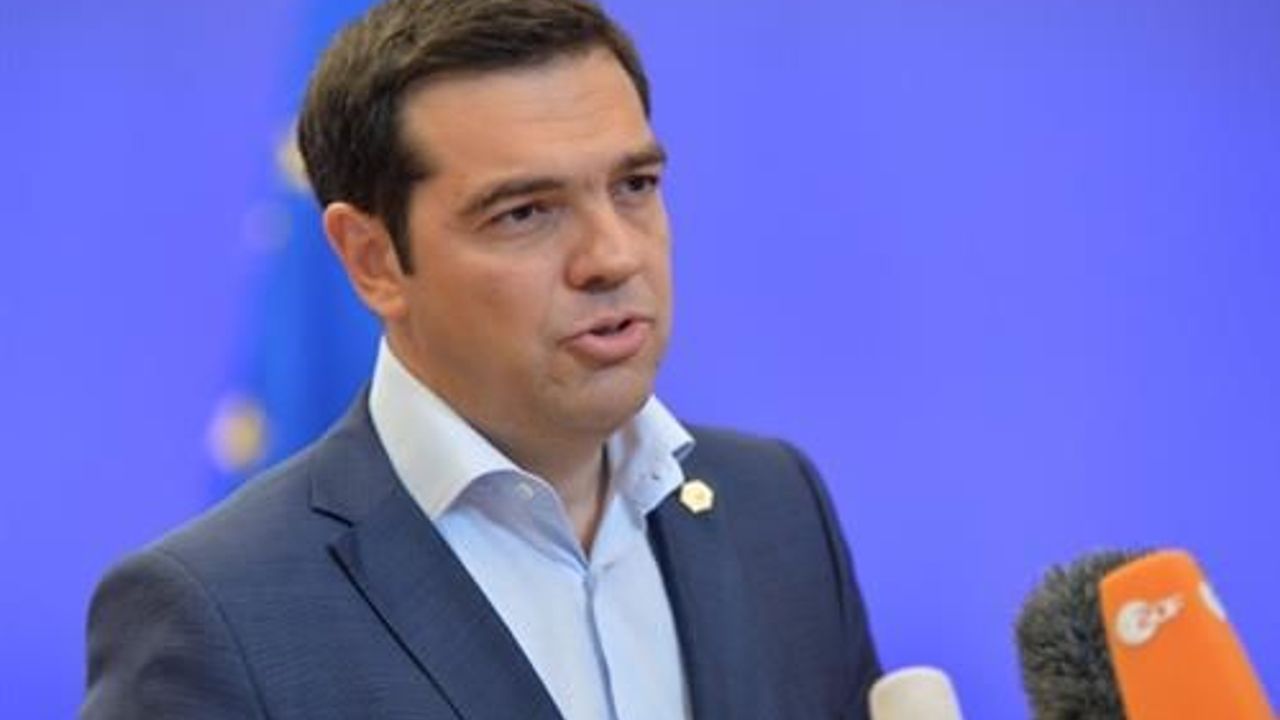Greek PM Tsipras rejects bailout deal, calls for referendum
Business |
Tsipras says bailout offer from creditors is 'humiliating blackmail,' and demands that Greek people be allowed to choose

Font Size:
Greek Prime Minister Alexis Tsipras will run a referendum to determine whether the Greek government should accept or reject a bailout deal from its international creditors.
Tsipras late on Friday was offered a five-month, 12 billion ($13.4 billion) extension of the countrys current bailout program, on the condition that some of the reform proposals the creditors demand get implemented.
German Chancellor Angela Merkel urged Greece to accept the deal, describing it as "extraordinarily generous".
But Tsipras in a televised speech said that the Greek government had been asked to accept "unbearable burdens" that would cost jobs and raise taxes.
"After five months of tough negotiations, our partners, unfortunately, resorted to a proposal-ultimatum to the Greek people, Tsipras said. I call on the Greek people to rule on the blackmailing ultimatum asking us to accept a strict and humiliating austerity without end and without prospect, he added.
The call for a referendum came at a time when the creditors and Greece were said to be "very close" to reaching a compromise agreement, as European Commission President Jean-Claude Juncker had noted before the meeting of the Eurogroup and the Greek delegation on Friday.
"There is a real chance to conclude an agreement," he said, describing Saturday as "a crucial day not only for Greece but for the euro area as a whole.
Tsipras said that he would accept the democratic decision of the Greek people. But his party, Syriza, would campaign for a no vote.
Opposition parties have already decried the referendum decision and are calling for Tsipras' resignation.
The referendum will be held on July 5, assuming parliament approves the referendum proposal on Saturday.
Without the bailout, Greece will default on its $2 billion payments due to the International Monetary Fund by the end of June.
The country is nearly without funds to run its public services and banking system. Banks are dependent on emergency loans from the European Central Bank, and these will now no longer be available until the referendum.
The news that bailout talks had broken down has already caused a run on Greek banks.
Anadolu Agency
Tsipras late on Friday was offered a five-month, 12 billion ($13.4 billion) extension of the countrys current bailout program, on the condition that some of the reform proposals the creditors demand get implemented.
German Chancellor Angela Merkel urged Greece to accept the deal, describing it as "extraordinarily generous".
But Tsipras in a televised speech said that the Greek government had been asked to accept "unbearable burdens" that would cost jobs and raise taxes.
"After five months of tough negotiations, our partners, unfortunately, resorted to a proposal-ultimatum to the Greek people, Tsipras said. I call on the Greek people to rule on the blackmailing ultimatum asking us to accept a strict and humiliating austerity without end and without prospect, he added.
The call for a referendum came at a time when the creditors and Greece were said to be "very close" to reaching a compromise agreement, as European Commission President Jean-Claude Juncker had noted before the meeting of the Eurogroup and the Greek delegation on Friday.
"There is a real chance to conclude an agreement," he said, describing Saturday as "a crucial day not only for Greece but for the euro area as a whole.
Tsipras said that he would accept the democratic decision of the Greek people. But his party, Syriza, would campaign for a no vote.
Opposition parties have already decried the referendum decision and are calling for Tsipras' resignation.
The referendum will be held on July 5, assuming parliament approves the referendum proposal on Saturday.
Without the bailout, Greece will default on its $2 billion payments due to the International Monetary Fund by the end of June.
The country is nearly without funds to run its public services and banking system. Banks are dependent on emergency loans from the European Central Bank, and these will now no longer be available until the referendum.
The news that bailout talks had broken down has already caused a run on Greek banks.
Anadolu Agency
Video News

WORLD
26 Mart 2024 - 11:18
Photo News






